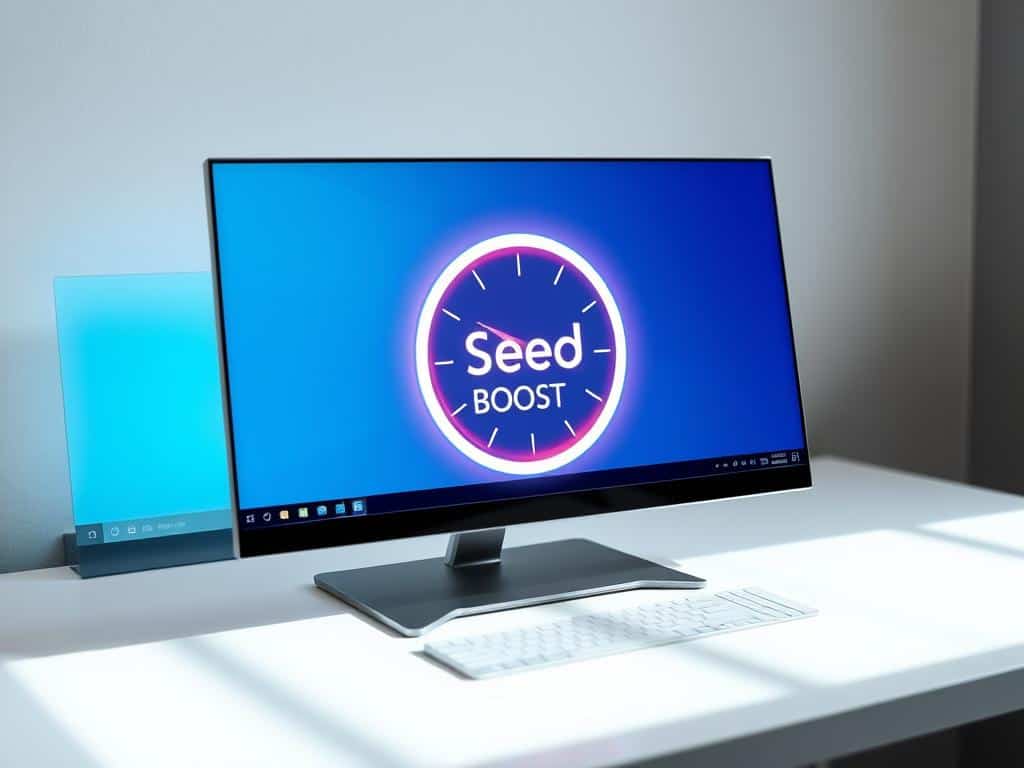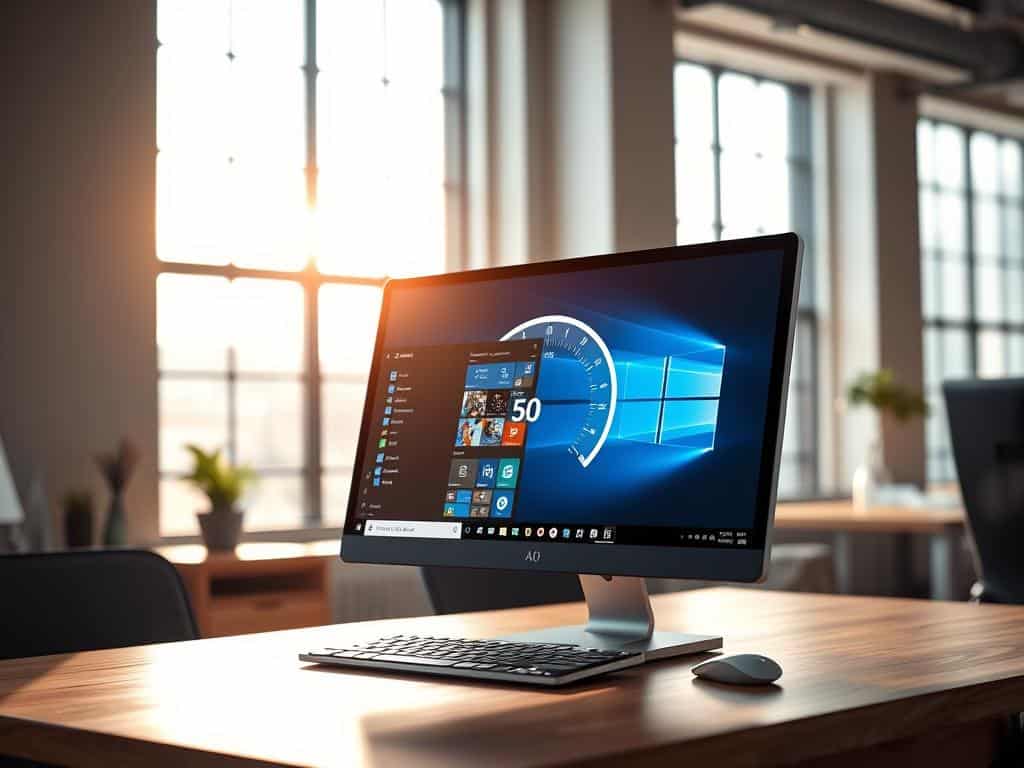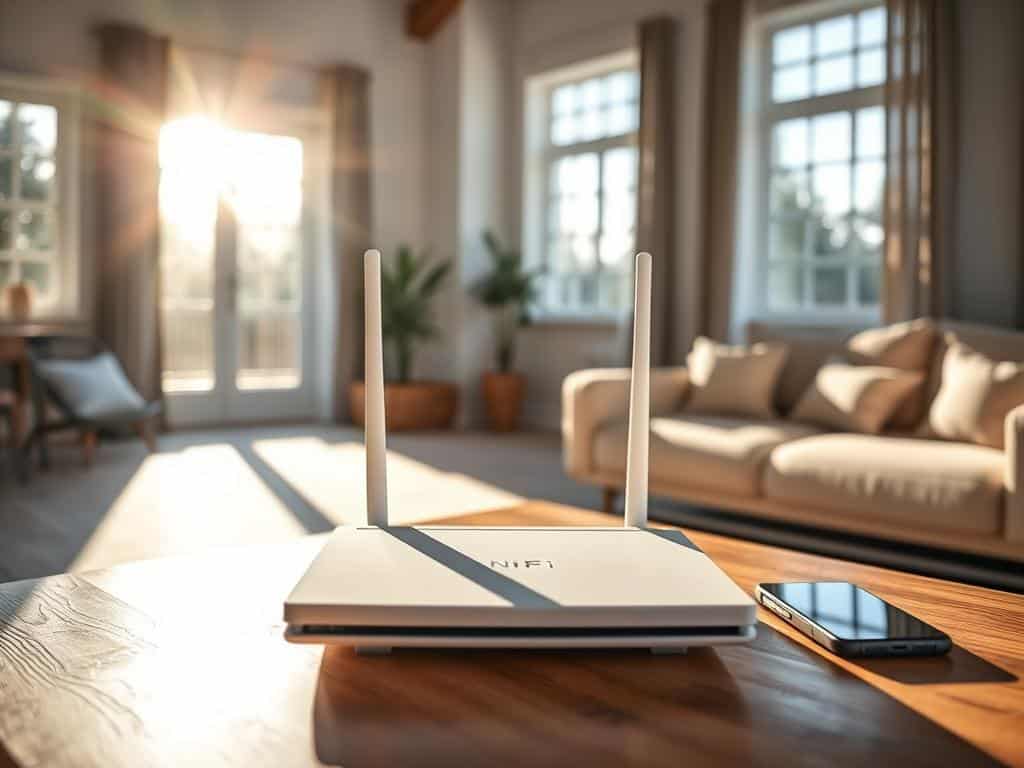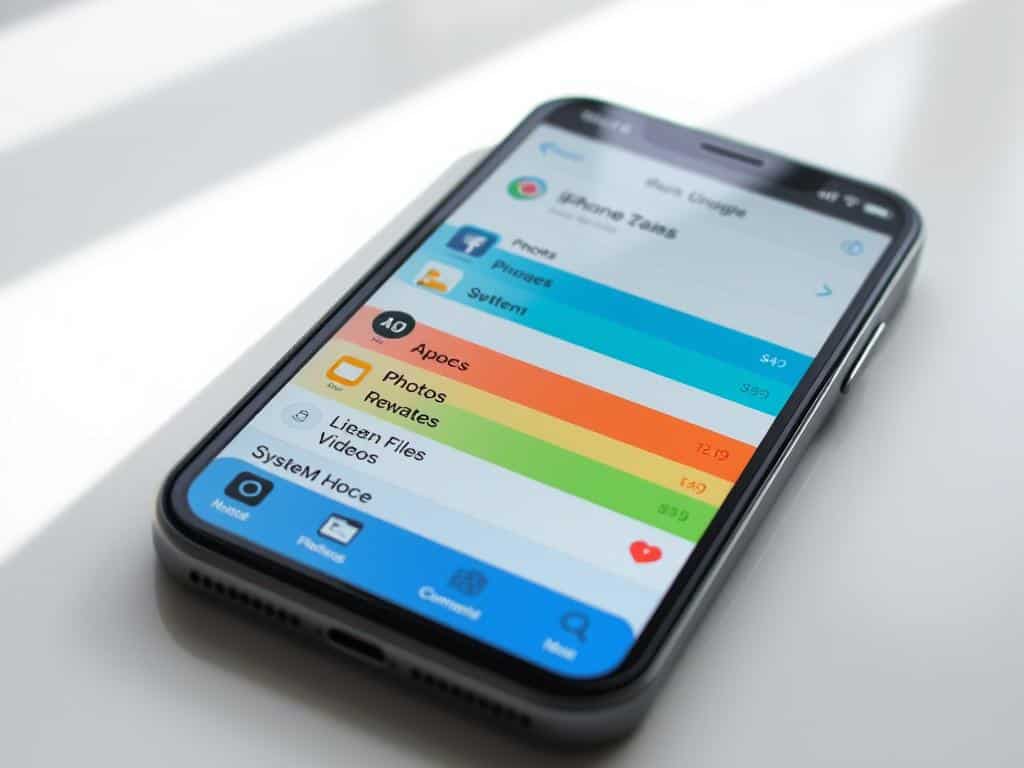Did you know a slow computer can cut productivity by about 30%? This shows how important it is to keep our Windows PCs running well. If you’ve ever waited for programs to open or tasks to finish, you’re not alone. Many people struggle with slow computers, but there’s good news.
I’m here to share simple and effective ways to make your Windows PC faster. These tips are easy to follow and won’t cost a lot. With a bit of effort, you can make your computer run better and enjoy a smoother experience. Let’s look at some key steps to boost your PC’s performance and make Windows faster and more efficient.
Key Takeaways
- A slow computer can reduce productivity by about 30%.
- Regular updates can improve performance by 20-30%.
- Disk Cleanup can free up 10-20% of disk space, making it faster.
- Malware can slow down performance by using up to 50% of system resources.
- Uninstalling unused programs can free up important system resources.
Understanding the Basics of PC Optimization
Knowing how to optimize your PC is key to keeping it running well. Regular upkeep is essential for a smooth system. Without it, you might see your computer slow down, leading to frustration.
Signs like long boot times and slow app launches are clear warnings. They tell you it’s time to give your PC some TLC. Spotting these signs early helps you fix your slow Windows PC.
Importance of Regular Maintenance
Regular maintenance stops your PC from getting slower over time. Simple steps like updating software can make a big difference. Studies show updates can cut crashes by up to 80%.
Cleaning up disk space also helps. It frees up to 20% of your hard drive and boosts performance. By doing these tasks, your computer stays fast and efficient.
Common Signs of a Slow PC
There are many signs your PC might be slowing down. Look out for long boot times and slow app starts. System freezes are another red flag.
Fixing these issues early can prevent bigger problems later. Keeping an eye on your system’s performance is important. This way, you can catch any signs your PC needs a tune-up.
10 Essential Tips for a Windows Speed Boost
I love using technology and always look for ways to make my Windows PC faster. These tips can really help speed up your PC and make it more efficient. Here are ten key tips for better performance.
Clean Up Disk Space with Built-in Tools
First, I clean up disk space. Windows has tools like Disk Cleanup and Storage Sense. They get rid of temporary files and Recycle Bin items. Storage Sense also helps manage space automatically, keeping your system tidy.
Uninstall Unused Programs for Efficiency
Many PCs have programs you don’t need, called bloatware. Getting rid of these frees up RAM and CPU. Even removing a few can make your PC run better.
Limit Startup Programs to Enhance Boot Time
Managing startup programs is key. I use Task Manager to see which programs start up and how they affect my PC. Turning off programs that slow things down makes my PC start faster.
Upgrade Your RAM for Better Performance
For more speed, I might upgrade my RAM. 16GB of DDR4 RAM costs about $50, a small price for big performance gains. This is great for gaming or creating content, making your PC more responsive.

Advanced Techniques for a Performance Boost
Looking to make your Windows PC faster? I’ve found some advanced techniques that can really boost your system’s speed. These methods can make your computer run smoother and faster, giving you a better user experience.
Defragment Your Hard Drive
Defragmenting your hard drive can make your files load faster. It’s a simple way to improve your PC’s performance. Even though newer systems do this automatically, it’s good to check manually, too.
Install an SSD for Rapid Data Access
Upgrading to an SSD is a game-changer for your system’s speed. SSDs are way faster than traditional hard drives. They make apps load quicker and your PC boots up almost instantly. Many people see their boot times cut in half after switching.
Run Regular Malware Scans to Keep Bugs at Bay
Keeping your system clean and safe is key for top performance. Regular malware scans can find and remove threats that slow you down. Many antivirus programs offer real-time protection and scheduled scans, making it easy to keep your system running smoothly.
Adjust Power Settings for Maximum Output
Switching to High Performance power settings can really speed up your system. It lets your PC use its full power, making everything run smoother. Yes, it might use more energy, but the speed boost is worth it, even for tough tasks.
Conclusion
Boosting Windows speed is achievable with the right PC optimization tips. These tips focus on regular maintenance and smart system management. By cleaning up disk space, managing startup programs, and running regular malware scans, I can make my slow Windows PC faster.
Even simple actions can make a big difference. Adjusting visual effects or using the Windows power slider can improve performance. Upgrading RAM or switching to an SSD can increase performance by 50% to over 200%.
In summary, I’ve learned that improving my PC’s performance is possible. By upgrading wisely and maintaining my system well, I’m on track to enjoy a faster, more responsive Windows experience.



